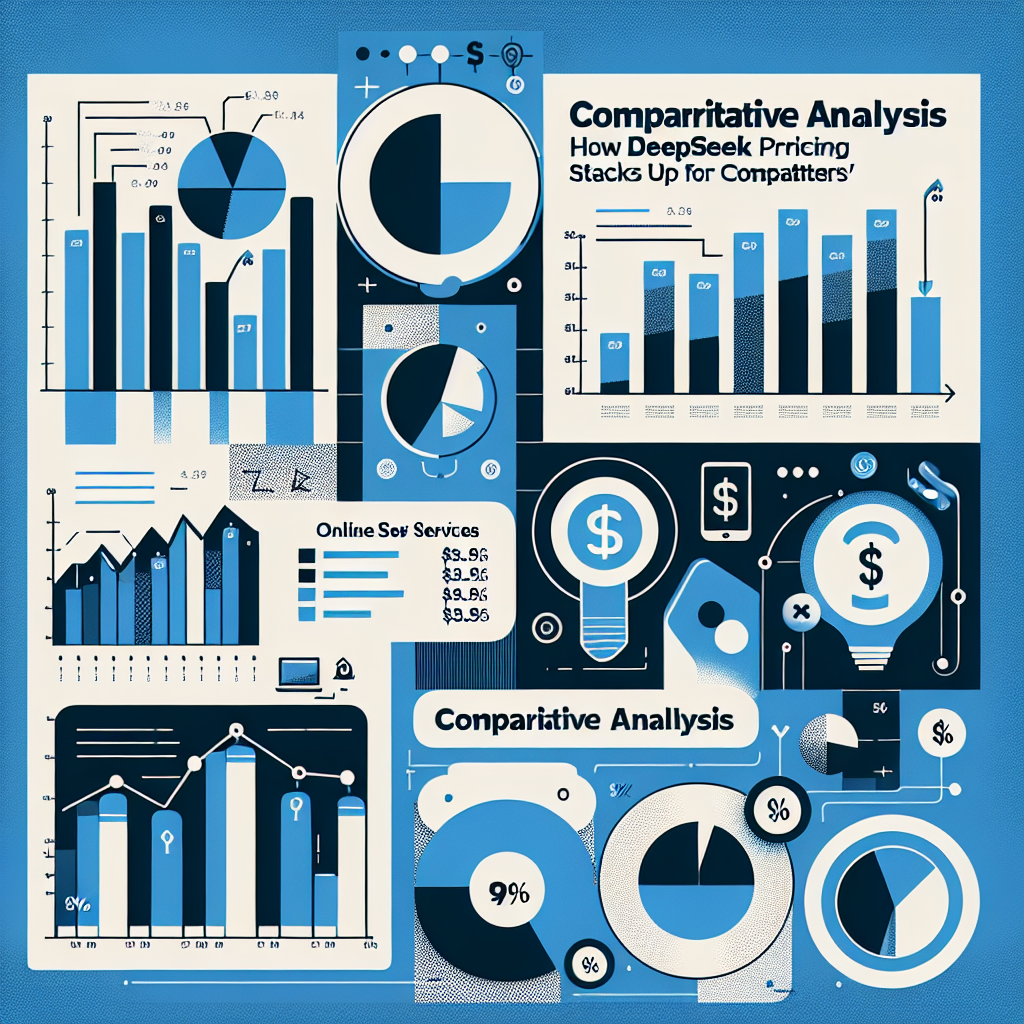[ad_1]
In an ever-evolving digital landscape, where data analysis and market intelligence play crucial roles, businesses depend on reliable and cost-effective tools to derive insights. DeepSeek, a rising player in the data analytics and search engine domain, is gaining traction for its innovative features. However, as companies assess their options, pricing becomes a pivotal consideration. In this article, we delve into a comparative analysis of DeepSeek pricing against its competitors.
Overview of DeepSeek
DeepSeek positions itself as an advanced analytics platform that specializes in deep learning techniques, enabling users to extract valuable insights from vast data sets quickly. With features such as natural language processing (NLP), machine learning capabilities, and user-friendly interfaces, it aims to simplify complex data challenges for businesses of all sizes.
Pricing Structure
DeepSeek offers a tiered pricing model, which includes:
- Free Tier: Basic functionalities ideal for individual users or startups looking to get a taste of the platform’s capabilities.
- Pro Plan: A monthly subscription for small to medium-sized enterprises, which includes advanced features like enhanced data integration and support. Pricing hovers around $49 to $99 per month.
- Enterprise Solutions: Customizable solutions tailored to large organizations’ specific needs. Pricing is generally provided upon consultation, with estimates based on the scale of requirements and resources.
Competitor Overview
To grasp where DeepSeek stands, it’s essential to compare it against prominent players in the analytics space, namely Tableau, Microsoft Power BI, and Google Analytics.
Tableau
Pricing Structure:
- Tableau offers a free public version but charges around $70 per user per month for the Creator license, which includes desktop, server, and online functionalities.
Key Features:
- Complex data visualization and dashboard creation.
- Strong capabilities in handling large datasets.
Comparison:
While Tableau is revered for its visualization prowess, it can become expensive for larger teams due to its per-user pricing model. In contrast, DeepSeek provides a more flexible pricing model with a focus on AI-driven insights that could be more appealing to cost-sensitive organizations.
Microsoft Power BI
Pricing Structure:
- Power BI provides a compelling offer, charging approximately $9.99 per user/month for the Pro version and around $499.99 per month for a premium capacity license.
Key Features:
- Seamless integration with other Microsoft products.
- Interactive reports and real-time data analytics.
Comparison:
Microsoft Power BI is known for its affordability and strong market integration appeal. However, for companies that prioritize AI features and ease of use, DeepSeek’s pricing starts lower for users seeking advanced analytics, making it a valid alternative.
Google Analytics
Pricing Structure:
- Google Analytics is predominantly free with premium features available through Google Analytics 360, which can run into tens of thousands of dollars annually, depending on usage.
Key Features:
- In-depth tracking of web analytics and user behavior.
- Real-time data monitoring.
Comparison:
Google Analytics is ubiquitous for web insights, but lacks in-depth analytics capabilities that DeepSeek’s machine learning and NLP features offer. Companies that require more than just user tracking might find DeepSeek’s pricing and features advantageous.
Price-Value Analysis
In evaluating DeepSeek’s pricing in the context of competitor offerings, several points emerge:
-
Feature Set: While DeepSeek’s price points are generally competitive, it provides unique AI-driven functionalities that are not always available in competitor products at similar pricing tiers.
-
Flexibility: The tiered pricing model allows growing businesses to scale up based on their usage and needs, making it easier to manage budgets compared to competitors that impose stricter user-based billing.
- Target Market Fit: DeepSeek’s affordability and intuitive design make it particularly appealing to startups and SMBs that may feel priced out by the larger analytics tools.
Conclusion
DeepSeek presents a compelling option in the competitive analytics landscape, especially when viewed through its pricing structure. While established players like Tableau, Microsoft Power BI, and Google Analytics command respect for their visualization and analytics power, DeepSeek’s unique feature set combined with competitive pricing provides an attractive alternative for businesses looking to harness the power of their data without the burden of high costs. As organizations become increasingly aware of data’s significance, the choice of analytics tools will heavily rely on price-value ratios, where DeepSeek appears to have carved a niche for itself.
[ad_2]

